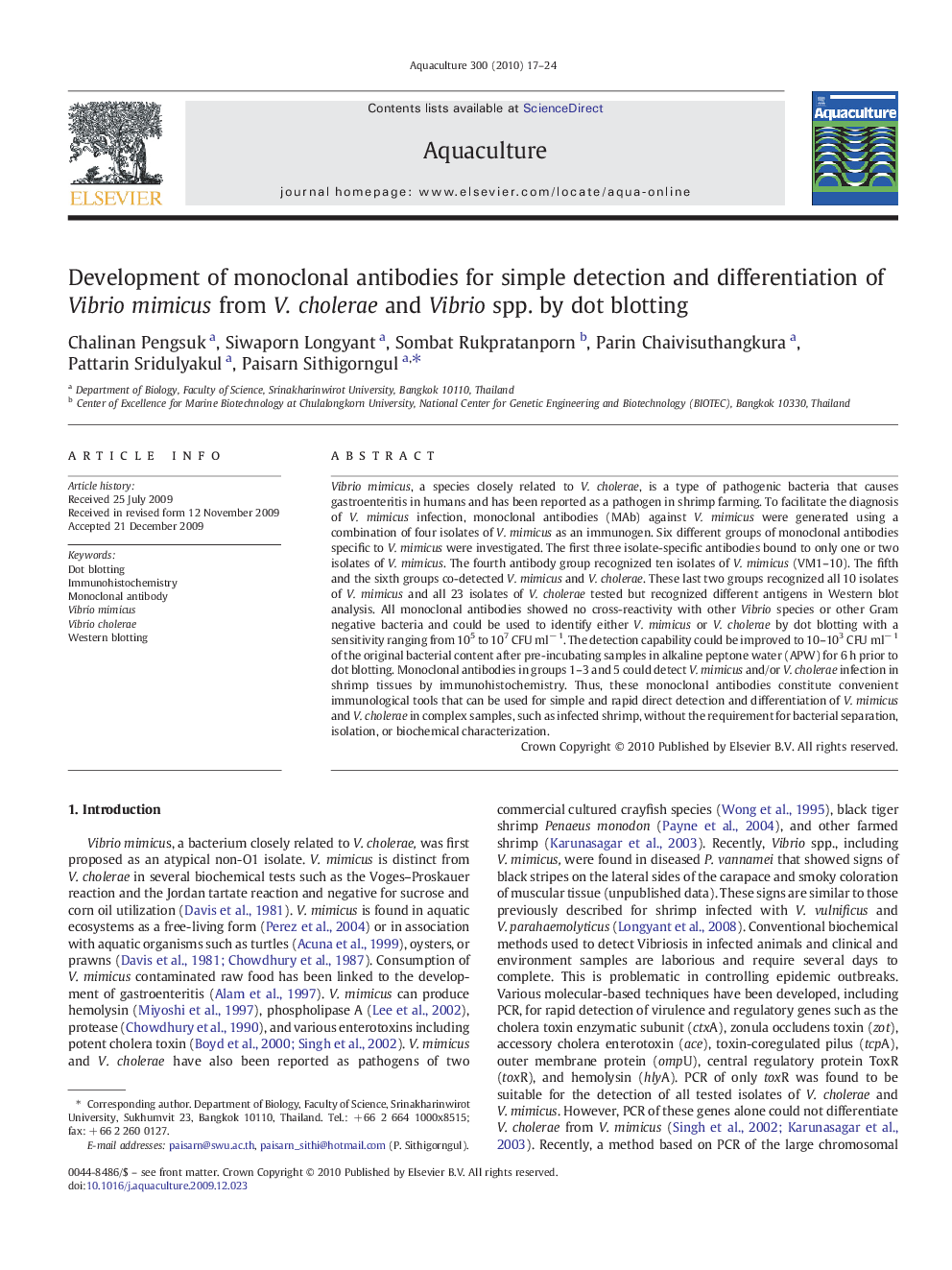| Article ID | Journal | Published Year | Pages | File Type |
|---|---|---|---|---|
| 2423726 | Aquaculture | 2010 | 8 Pages |
Vibrio mimicus, a species closely related to V. cholerae, is a type of pathogenic bacteria that causes gastroenteritis in humans and has been reported as a pathogen in shrimp farming. To facilitate the diagnosis of V. mimicus infection, monoclonal antibodies (MAb) against V. mimicus were generated using a combination of four isolates of V. mimicus as an immunogen. Six different groups of monoclonal antibodies specific to V. mimicus were investigated. The first three isolate-specific antibodies bound to only one or two isolates of V. mimicus. The fourth antibody group recognized ten isolates of V. mimicus (VM1–10). The fifth and the sixth groups co-detected V. mimicus and V. cholerae. These last two groups recognized all 10 isolates of V. mimicus and all 23 isolates of V. cholerae tested but recognized different antigens in Western blot analysis. All monoclonal antibodies showed no cross-reactivity with other Vibrio species or other Gram negative bacteria and could be used to identify either V. mimicus or V. cholerae by dot blotting with a sensitivity ranging from 105 to 107 CFU ml− 1. The detection capability could be improved to 10–103 CFU ml− 1 of the original bacterial content after pre-incubating samples in alkaline peptone water (APW) for 6 h prior to dot blotting. Monoclonal antibodies in groups 1–3 and 5 could detect V. mimicus and/or V. cholerae infection in shrimp tissues by immunohistochemistry. Thus, these monoclonal antibodies constitute convenient immunological tools that can be used for simple and rapid direct detection and differentiation of V. mimicus and V. cholerae in complex samples, such as infected shrimp, without the requirement for bacterial separation, isolation, or biochemical characterization.
